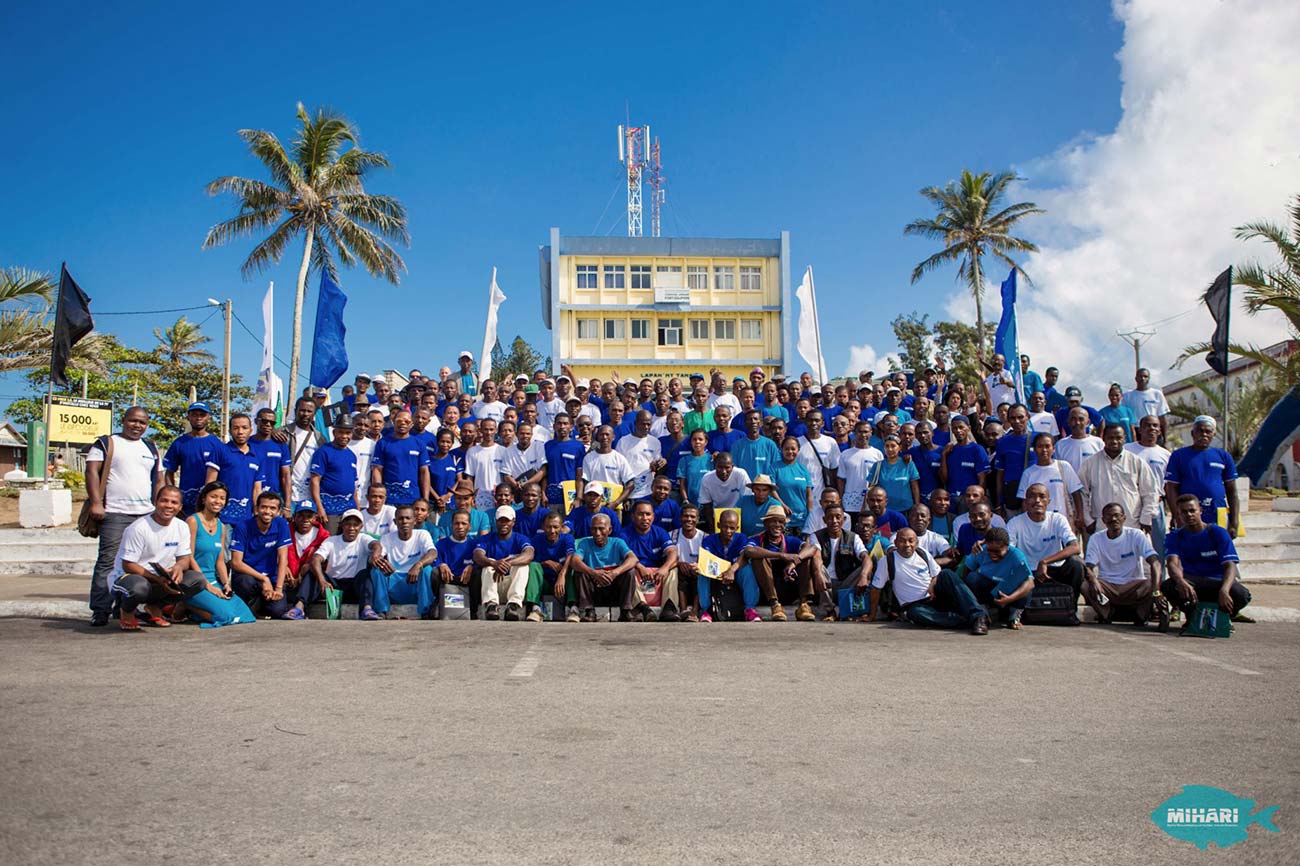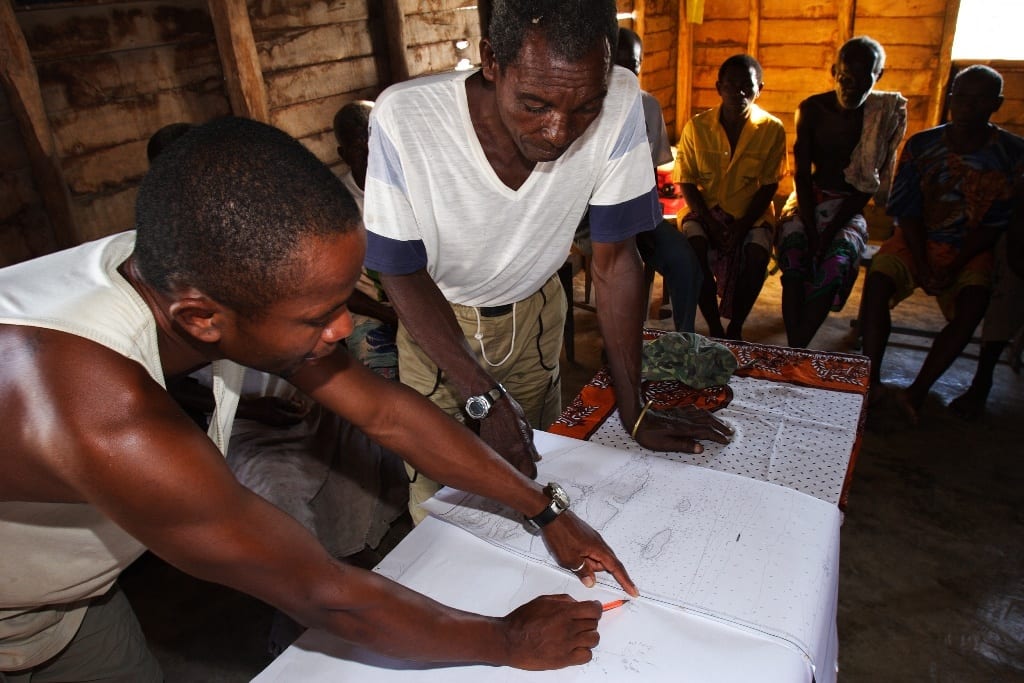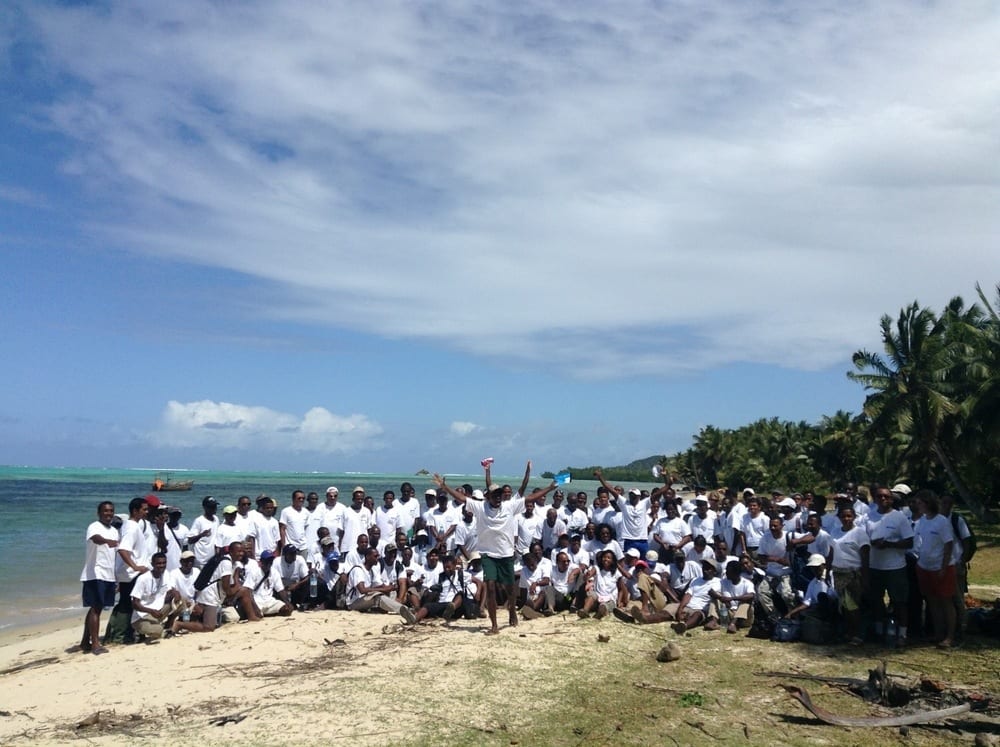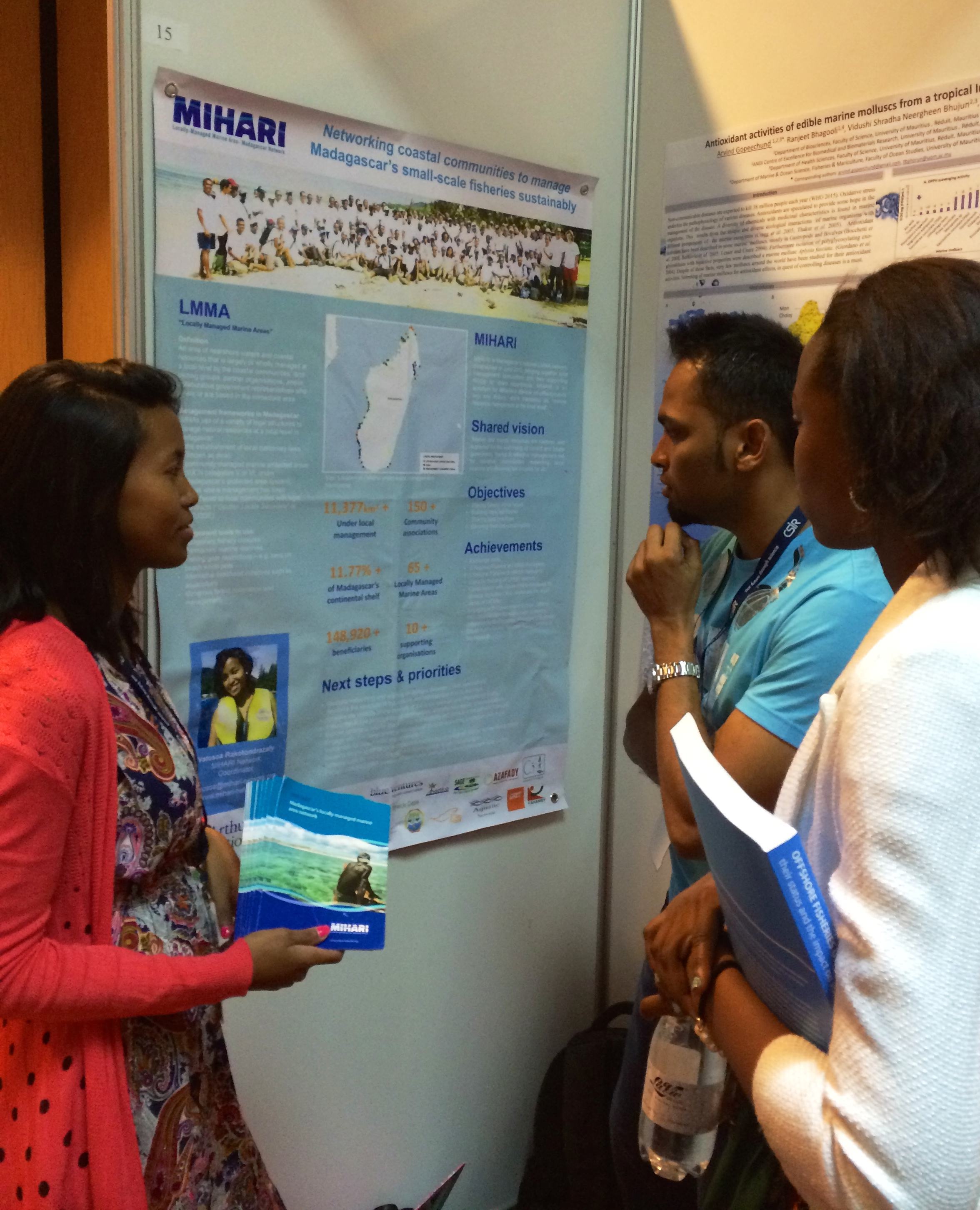A historic assembly of Madagascar’s coastal communities occured at the MIHARI Network’s fourth National Forum in Fort-Dauphin in July 2017. Over 170 small-scale fishermen and women from around the country raised their voices at the forum to appeal for their fundamental rights to sustainably exploit their traditional fishing sites.
By establishing Locally Managed Marine Areas (LMMAs), often with the support of partner organisations, the fishing communities within the MIHARI Network have taken control of the management of their local marine resources to combat declining fisheries, habitat degradation and destructive fishing practices.
At the forum, they joined forces to address these issues at the policy level for the first time. By coming together as the MIHARI Network, these communities can speak with one voice, and advocate for specific changes in government and donor policy. This is a significant step towards mobilising civil society in Madagascar.
Community leaders representing LMMAs from around the country presented three motions to Government representatives in attendance at the National Forum. These motions were a culmination of a series of regional and national consultations with communities and NGOs across the MIHARI network, which gathered together the voices and votes of more than 400 fishers.
They were unanimously adopted in the presence of the Director General of the Ministry of Fisheries on the final day of the National Forum, the 31st of July 2017.
The first motion requests that the Government of Madagascar grant coastal communities exclusive fishing rights along the coastal strip, a policy that is common in other countries. This is to prevent the pressure caused by foreign industrial fishing boats, which compete directly with small-scale fisheries for marine resources.
The second motion requests strong measures to reduce the impact of destructive fishing gear, which contribute significantly to the degradation of fragile ecosystems. The motion also requests that there be a concerted effort to fully eradicate the use of the most destructive fishing gear.
Last but not least, the third motions requests that the community dina (traditional local laws) concerning the management of marine resources should be better recognised and approved more quickly. Dina are well known to be an effective tool for ensuring an efficient management of LMMAs.
The adoption of these motions is the result of a huge effort from coastal communities, and showcases the liveliness of Madagascar’s civil society. With a strong desire to continue this momentum, the MIHARI Network will continue to work with the authorities, the Centre de surveillance des Pêches (Fisheries Monitoring Center), NGOs, donors and all other stakeholders to find sustainable solutions for the benefit of fishing communities.
About the 3 motions :
Motion 1 – Formalization and implementation of dina in natural resource management
Motion 2 – Regulation of fishing gear
Motion 3 – Creation of an exclusive fishing zone for small-scale fishers on the coastal strip




